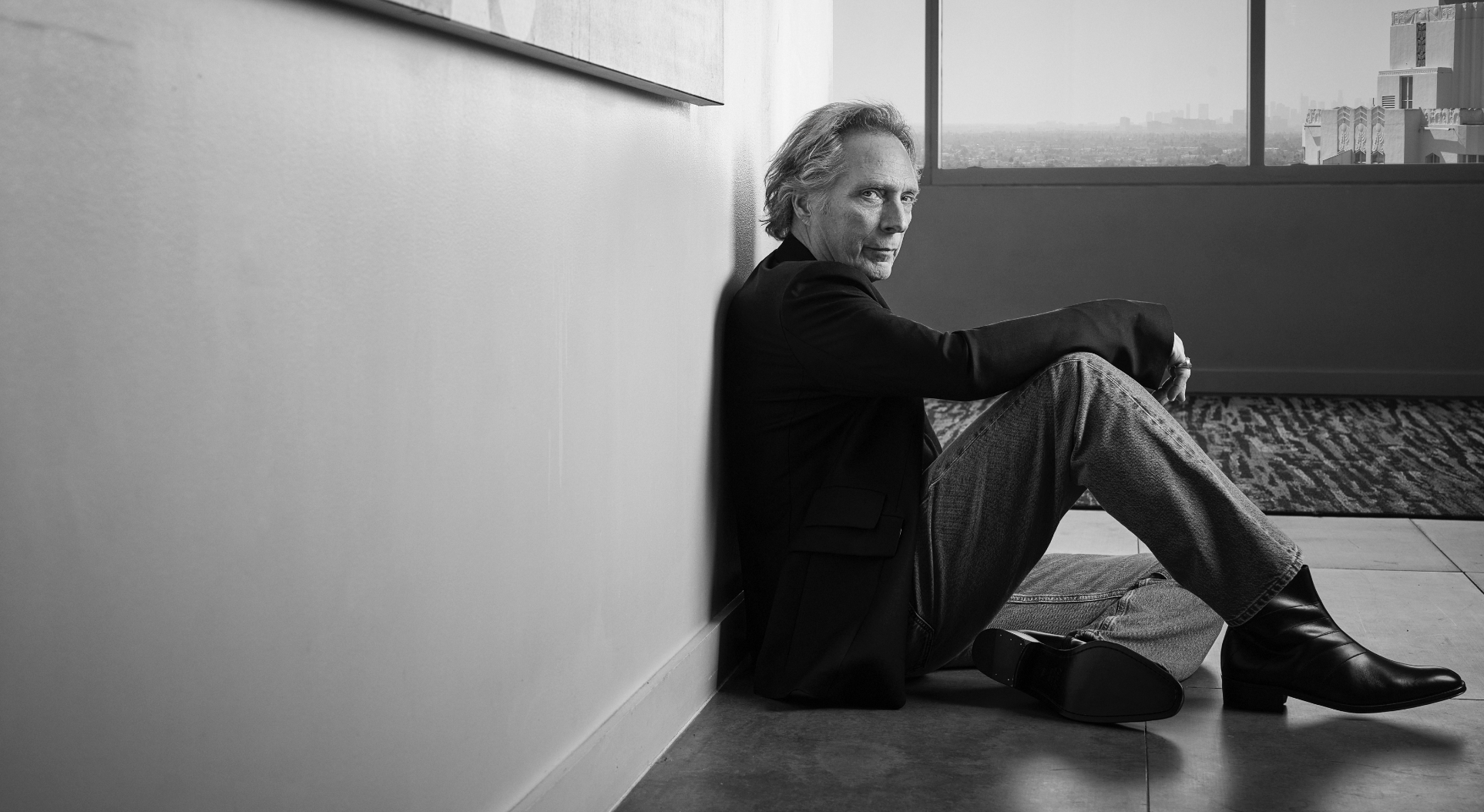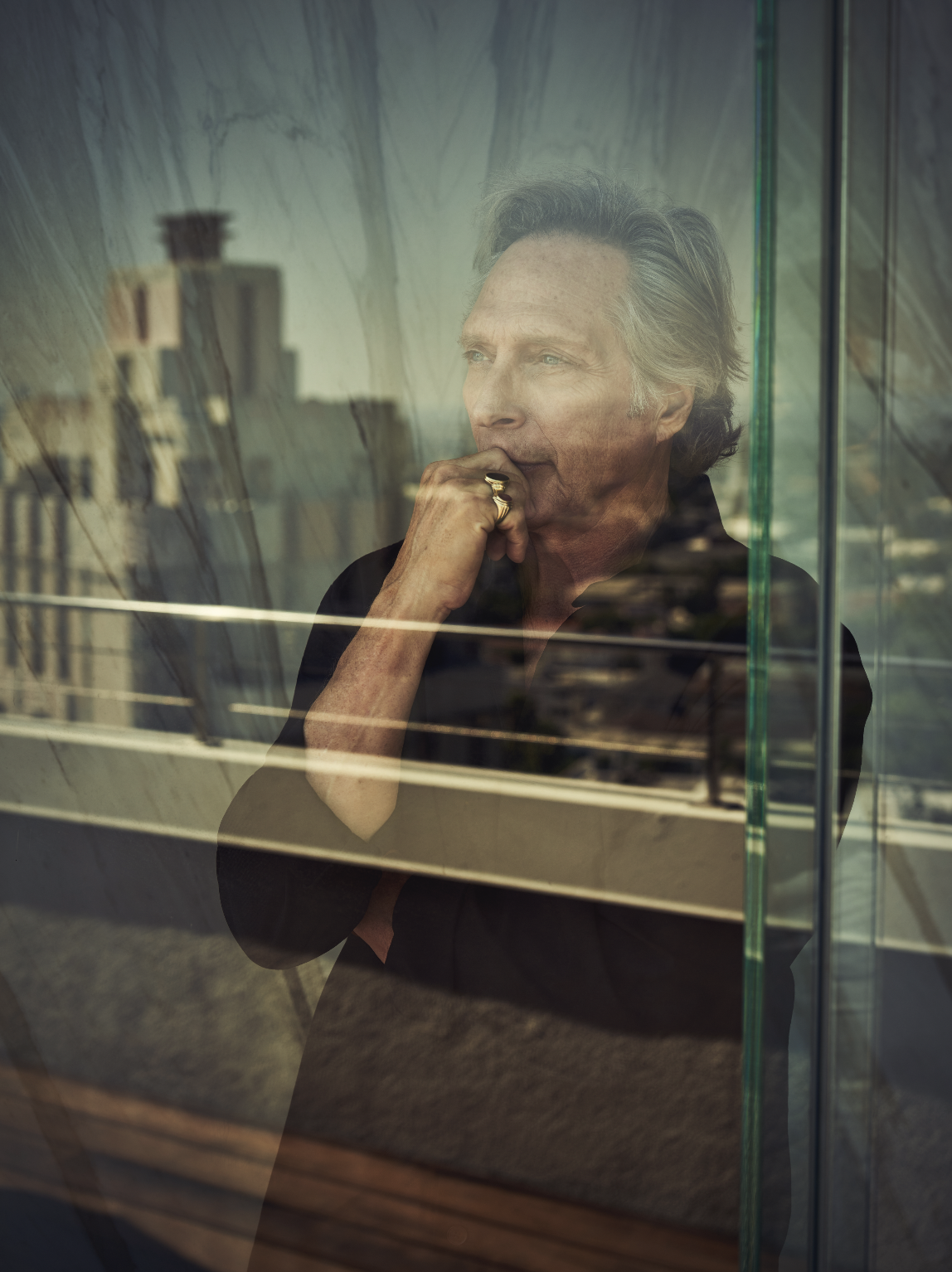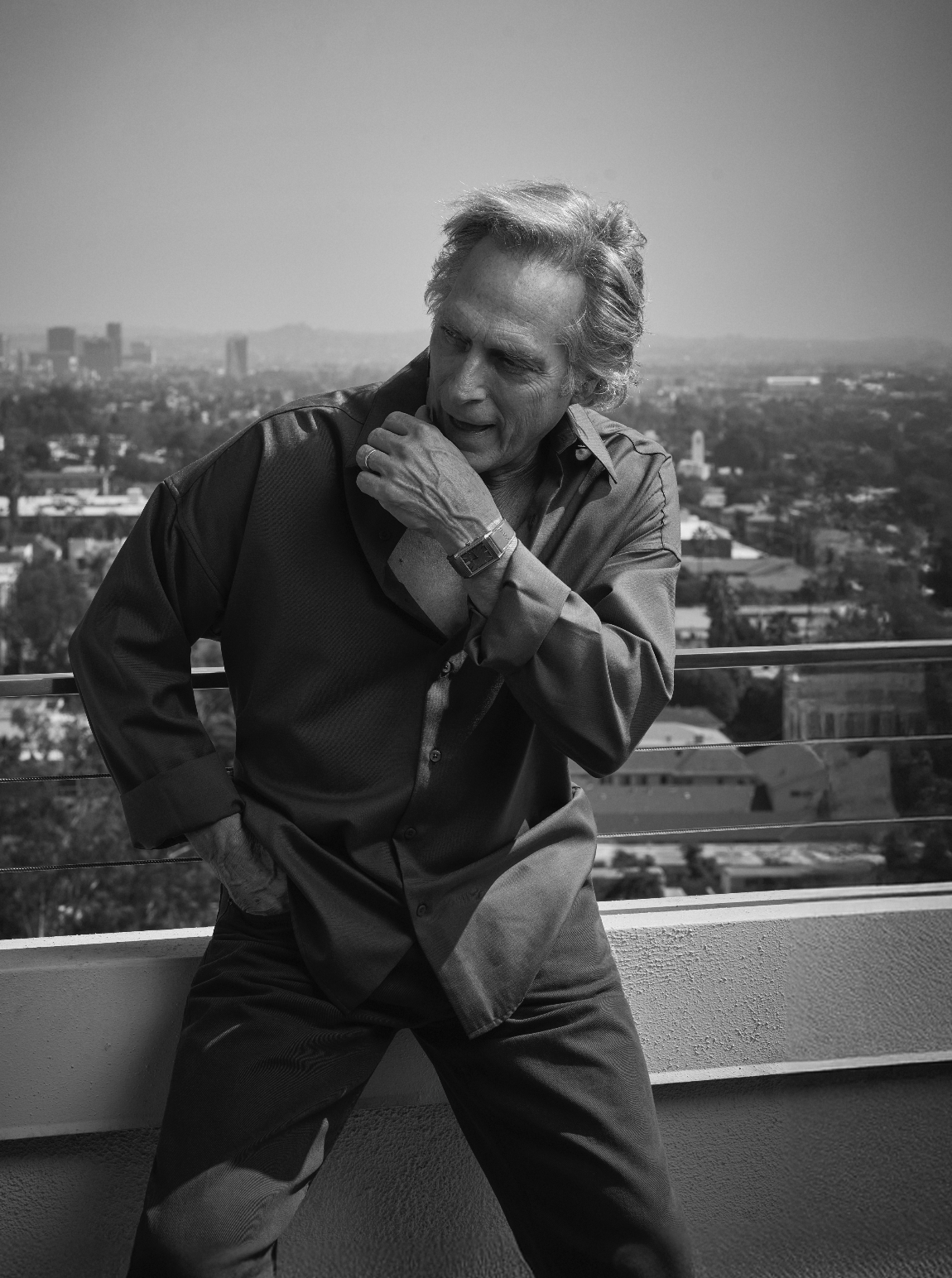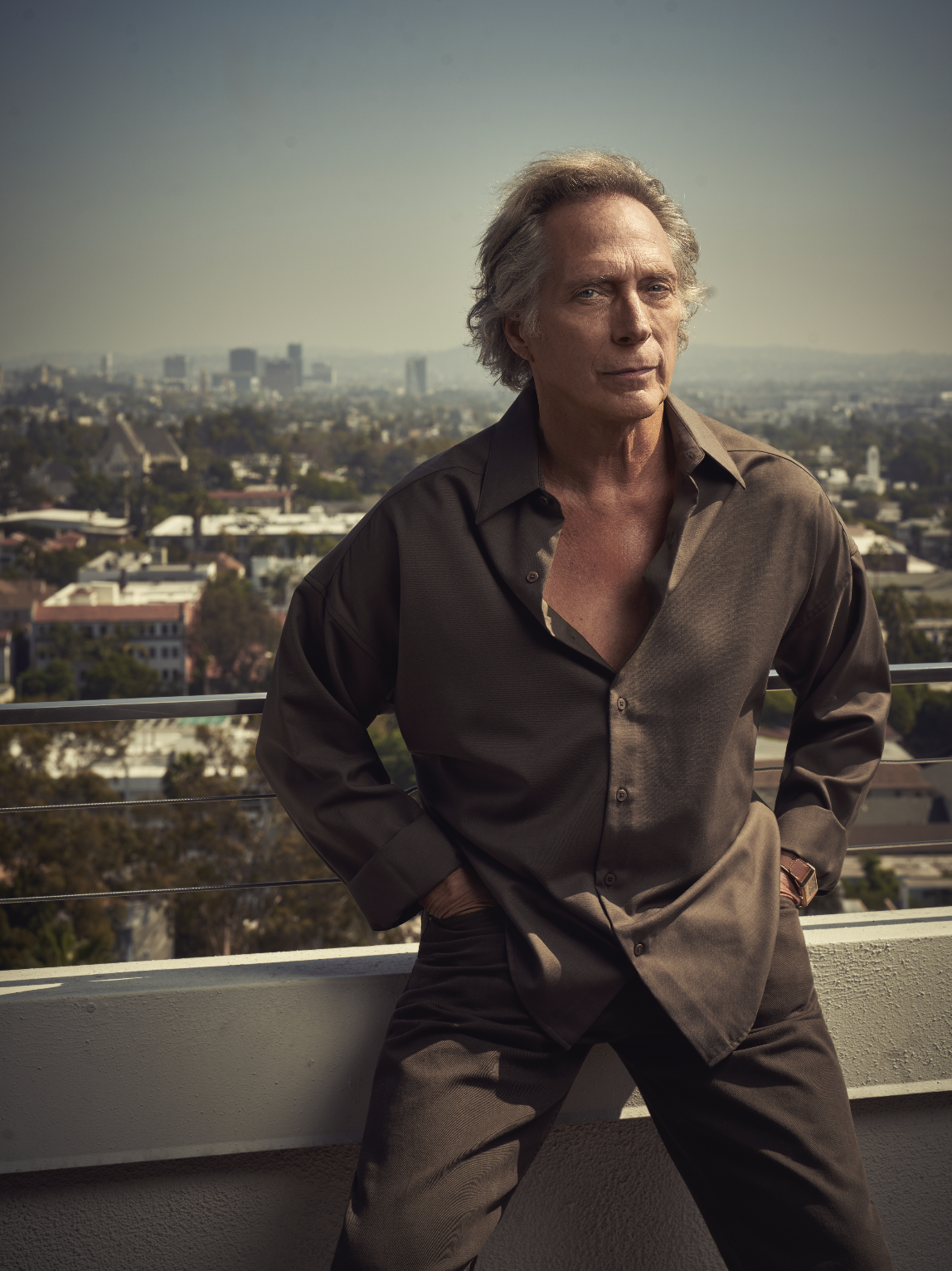W I L L I A M F I C H T N E R
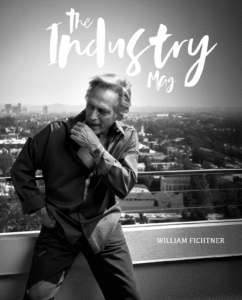
Photographed by: John Russo
Interview: John Russo
Styled by: Chaise Dennis
Grooming: Sonia Lee
Location: Andaz West Hollywood
Video: Ken Waller Media
JR: You’ve played such a wide range of characters from lawmen to villains to everyday guys. How do you approach getting into such diverse roles?
WF: (laughs) Well, it’s different every time. I guess if I had an answer to that I should write a book so I could remind myself what I did the time before. Not sure who would read the book besides me— probably my four sisters. It’s different every time. You don’t know what that thing is that’s going to give you a clue into who somebody is. Is it physical? Is it emotional? For me personally, I think the biggest joy is in the discovery process of trying to fully realize who a character is. That’s the goal anyway.
JR: Is there a role that you feel has defined your career?
WF: I’m still waiting for it; will you write it for me? (laughs) No, I don’t think there’s one particular role that changed the course of my career or fully defined it. I think there are several roles along the way that really helped my journey. Contact comes to mind. I had been in two or three films before Contact and the roles were not necessarily tough guys, heavy guys, but definitely walking down that road. WhenI heard about the role of this blind scientist in the film, I flew myself out to LA to read the script in the casting director’s hallway. Contact was a real challenge to play a part like that, and quite honestly, changed the way I prepare, which was really exciting. And also Go, because it was such a cool and intense movie and but also really funny. Very interesting colors for any actor to play.
JR: You’ve worked with directors like Christopher Nolan and Michael Bay. How do their styles compare from an actor’s perspective?
WF: Well, you couldn’t have picked two guys from more opposite ends of the spectrum, I’ll tell you that! But I will also tell you that directors like Chris Nolan and Michael Bay and others that I have worked with, like Robert Rodriquez, Ridley Scott, Michael Mann,Robert Zemeckis and Gore Verbinski, they all have a crystal-clearvision about what they want. And having great vision allows the actor so much room. I like that these are not directors that have to spell out every single thing in detail about what you should think or do; they trust you and trust is freedom. When I feel trusted by a director, the sky is the limit, and then you can really play around.
JR: You’ve built a career that’s both respected and somewhat under the radar. Was that intentional or just how things unfolded?
WF: I worked with an actor once who wanted nothing more than to be famous. And you know what? He got it. But he didn’t get it just because he wanted it, he was really, really good. I’m a late bloomer to this. I graduated college with my shiny degree in Criminal Justice, wondering, “What am I going to do with my life?” When I moved to New York and started studying, I always felt that I was behind the eight ball. I always felt that everyone else knew how to talk about acting in ways that I didn’t know how to talk about it. I was very intimidated by it all. So, what always mattered more to me was to have my peers respect what I did. Nothing meant more to me than that, probably still doesn’t. Did I plan on being under the radar? (laughs) It’s not a bad view under the radar. I wouldn’t mind a few minutes above the radar. I mean I don’t have to live up there, but ...
JR: In your latest project, Anne Rice’s Talamasca: The Secret Order, you play a mysterious, dark character who is pursuing power. How did this role come about?
WF: Well, outside of seeing the original film, Interview with theVampire, back in the early 90s, I was not really familiar with the Anne Rice universe, except for this past summer watching the first two seasons of the series Interview with the Vampire. And then, I got a call about a meeting with the creators of this new show called Talamasca. I had a lovely cup of coffee in Eagle Rock, California with the amazing Mark Johnson; Tom Williams, his producing partner; and John Lee Hancock and Mark Lafferty, the two showrunners. They gave me a copy of the first two scripts, and I have said it a million times in my life, but if it’s not on the page, it’s not on the stage. And it was on the page. It’s a combination of many things that makes something exciting, at least for me: Who is involved with it? How is the material? What do you think of the role? Do you feel like you can find that? Talamasca felt like it just had everything, not to mention the fact that it’s a mysterious and supernatural world, and I have never quite gone down that road. Sure glad I did.

